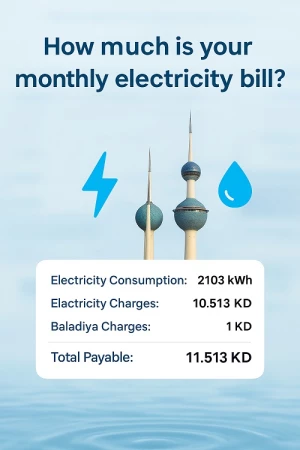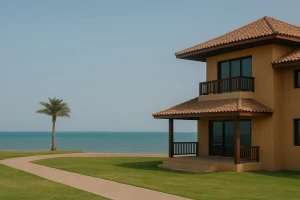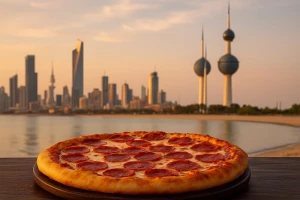Latest News
- Expats Alert: PACI Just Changed The Rules For Updating Your Addr...
- Best Pizza In Kuwait: Top Brands And What To Order
- Best Budget-Friendly Chalets & Villas In Kuwait For Weekend Geta...
- Why Electricity Bills Are Rising In Kuwait & Smart Ways Expats C...
- App Store Optimization: Why It’s Becoming A Core Part Of SEO Str...
- Best Shower Filters In Kuwait For Hair Fall And Skin Protection
- Exness Sets A New Standard Of Consistency In The Trading Industr...
- Instant Withdrawals In Trading – A Game Changer For Traders In K...
- Best Abaya Shop In Kuwait: Editorial Review Of Abay.com
- IPhone 17 In Kuwait: Prices, Colors, Specs & Where To Buy
- Best Drinking Water Filter For Home In Kuwait
- Avoid Common Qatar E-visa Application Mistakes. Learn The Top 5...
Kuwait’s Locally Farmed Shrimp Hits Market In Major KISR Milestone
The Kuwait Institute for Scientific Research (KISR) has marked its fourth consecutive year of success in producing and marketing locally farmed shrimp, showcasing a remarkable step forward in enhancing food security and reducing Kuwait’s reliance on seafood imports.
This major development aligns with the strategic objectives of the New Kuwait 2035 vision, which emphasizes self-sufficiency and sustainable development. The announcement was made at the “Shrimp Harvest” event held at the Kabd Research and Innovation Station, under the patronage of Acting Director General Dr. Faisal Al-Humaidan.
Advanced Biofloc Technology Powers Growth
Environmentally Friendly and Chemical-Free Aquaculture
At the event, Dr. Shireen Al-Subaie, Head of the Sustainable Economic Shrimp Farm Project, highlighted that KISR has made significant strides in productivity this year. Shrimp harvested reached an average weight of 20 grams, with yields surpassing two kilograms per square meter—thanks to closed, intensive farming systems adapted to Kuwait’s harsh environmental conditions and low-salinity groundwater.
The key to this success lies in the implementation of biofloc technology, an innovative, eco-friendly method that recycles water and eliminates the need for antibiotics or chemicals. KISR tailored this technology specifically for Kuwait’s unique groundwater composition, overcoming challenges posed by its unbalanced ionic profile.
First-Time Entry of Local Shrimp Into Kuwaiti Market
In a landmark achievement, Kuwaiti-farmed shrimp were introduced to the local market for the first time this year. Dr. Al-Subaie emphasized the importance of this development in reducing the country's over 70% dependency on imported shrimp, encouraging private sector participation in the aquaculture industry.
This achievement not only enhances food sustainability but also creates employment opportunities for Kuwaitis, supporting the nation's broader sustainable development goals.
Plans for a Large-Scale Fish Farming Complex
Looking ahead, KISR has proposed the creation of a massive economic fish farming complex at the Ghadi Desert site, covering 100,000 square meters. The complex aims to produce 1,200 tons of various fish species annually—including sea bream, grouper, mullet, and shrimp—as well as produce fish feed and related products.
Related Developments in Kuwait
Kuwait’s push for food innovation and agricultural sustainability is not limited to aquaculture. Initiatives like the Prices Platform launched by Cooperative Societies and shrimp market inspections by local authorities further demonstrate national efforts to ensure food security and consumer protection.
Global Interest in Biofloc Aquaculture
Globally, biofloc technology is gaining recognition as a sustainable solution to traditional aquaculture challenges. According to the FAO, such methods offer reduced environmental impact and higher productivity—trends that KISR is now successfully bringing to Kuwait.
Conclusion
KISR’s innovative use of biofloc technology and its success in shrimp farming mark a turning point in Kuwait’s journey toward self-reliance in seafood production. By reducing dependency on imports, generating employment, and promoting sustainability, KISR continues to lead in building a resilient food ecosystem for future generations.





